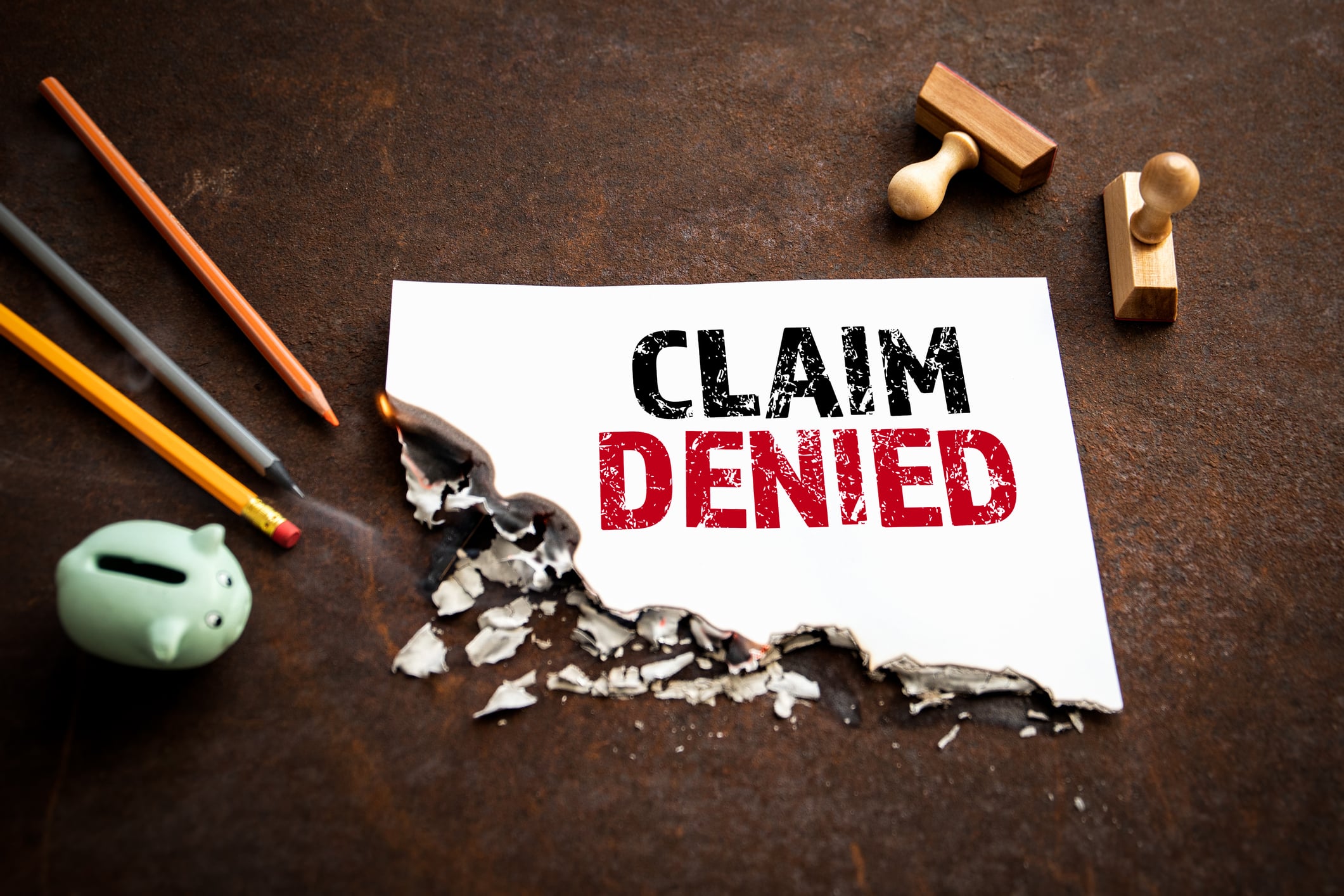
A VA claim denial can be disheartening, but it’s not the end of the road. Understanding why claims get denied and knowing your options for appeal is crucial. Many veterans successfully overturn initial denials by gathering more evidence or clarifying their case. Don’t give up; we’re here to help you navigate the process.
Finding out your VA claim was denied can feel like a gut punch. You’re not alone, and it’s definitely not the end of the line. We get it – you served your country, and now you’re facing a bureaucratic brick wall. That’s where we come in. This article will walk you through why VA claims get denied and, more importantly, what you can do about it. We’ll cover common reasons for denials, appeal options, and how to strengthen your case for a successful outcome. Consider this your battle plan for getting the benefits you’ve earned.
Understanding VA Claim Denials
What Percentage of VA Disability Claims Are Denied?
The VA denies a significant percentage of initial disability claims, often due to insufficient evidence or a lack of direct service connection. While the exact percentage fluctuates, it’s important to remember that a denial isn’t necessarily a reflection of your eligibility, but rather the need for a stronger, more substantiated claim. Don’t let this discourage you from pursuing the benefits you deserve.
Listen up, troop. The exact percentage of denied claims can vary year to year, but the important thing to know is that denials are common. This isn’t because the VA is trying to stiff you, but often because the initial application didn’t have all the necessary information or documentation to prove the service connection. A denial simply means the VA needs more evidence to support your claim. Think of it as “mission incomplete” – you just need to gather more intel to complete the objective.
Why Was My VA Claim Denied?
VA claims are denied for several reasons, including insufficient medical evidence, lack of a clear link between the disability and military service (service connection), or failure to attend required medical examinations. Sometimes, the VA may not have received all the necessary documentation, or the information provided was unclear or incomplete. Understanding the specific reason for your denial is the first step in building a successful appeal.
Alright, let’s get down to brass tacks. The VA isn’t trying to play games, but they do need solid proof before approving a claim. Here are a few common reasons why claims get the thumbs down:
- Insufficient Medical Evidence: The VA needs medical records, diagnoses, and treatment history to understand the nature and severity of your disability. If your records are incomplete or lack detail, it can lead to a denial.
- Lack of Service Connection: You need to show a clear link between your current disability and your time in service. This could involve providing service records, buddy statements, or medical opinions linking your condition to events or exposures during your military duty.
- Missed Medical Exams: The VA may require you to attend Compensation and Pension (C&P) exams to evaluate your condition. Missing these appointments can lead to a denial, as the VA won’t have the necessary medical information to assess your claim.
- Unclear or Incomplete Information: Make sure your application is filled out accurately and completely. Any ambiguities or missing details can cause delays or denials.
Remember, the VA operates on a “duty to assist” basis, meaning they should help you gather the necessary evidence. However, it’s ultimately your responsibility to ensure your claim is as strong as possible. VetsForever can help you draft up a statement in support of your claim for free. It’s a key factor when claiming service connection!
Do VA Tinnitus Claims Get Denied?
Yes, VA tinnitus claims can be denied, often because tinnitus is subjective and difficult to document. To increase the chances of approval, provide detailed descriptions of your symptoms, any specific incidents during service that may have caused the condition (like exposure to loud noises), and any audiometric testing results. Buddy statements from fellow service members who can attest to your noise exposure can also strengthen your claim.
Roger that, tinnitus claims can be tricky. Tinnitus is that ringing, buzzing, or hissing in your ears, and because it’s something only you can hear, it can be tough to prove. Here’s the deal on getting your tinnitus claim approved:
- Document Everything: Keep a log of your symptoms, including the intensity and frequency of the ringing. The more details you provide, the better.
- Link to Service: Show how your tinnitus is related to your military service. Were you exposed to loud noises during training, combat, or other duties? Provide specific details about those events.
- Get an Audiogram: An audiometric test can help document your hearing loss or tinnitus. Make sure to include these results with your claim.
- Buddy Statements: Statements from fellow service members who witnessed your exposure to loud noises can be powerful evidence. These “buddy statements” can corroborate your story and strengthen your claim.
If your tinnitus claim was denied, don’t sweat it. Gather more evidence and appeal the decision. VetsForever is here to provide guidance and support throughout the process.
Appealing a VA Claim Denial
What Are My Options for Appealing a Denied VA Claim?
Veterans have several options for appealing a denied VA claim, including filing a Supplemental Claim, requesting a Higher-Level Review, or appealing to the Board of Veterans’ Appeals. A Supplemental Claim involves submitting new and relevant evidence. A Higher-Level Review requests a senior reviewer to examine the original claim. Appealing to the Board of Veterans’ Appeals allows you to request a direct review, a hearing with a Veterans Law Judge, or have your case decided based on the existing record.
Alright, you’ve got options. When the VA says “not approved,” it’s not the end of the mission. Here are the paths you can take to fight back:
- Supplemental Claim: This is like calling in reinforcements. You submit new and relevant evidence to support your claim. This could include additional medical records, buddy statements, or expert opinions. The VA then reconsiders your claim based on this new evidence.
- Higher-Level Review: Think of this as requesting a second opinion from a senior officer. You ask a senior VA reviewer to take a fresh look at your original claim. No new evidence is submitted, but you can point out errors or omissions in the initial decision.
- Board of Veterans’ Appeals (BVA): This is like taking your case to the Supreme Court of the VA. You can choose from three options:
- Direct Review: The BVA reviews your case based on the existing record.
- Hearing with a Veterans Law Judge: You present your case in person (or via video conference) to a Veterans Law Judge.
- Decision Based on the Record: The BVA reviews your case based on the existing record, but you can submit additional arguments or briefs.
Each option has its own pros and cons, so it’s important to choose the path that best suits your situation. VetsForever can help you weigh your options and develop a strategy for a successful appeal.
How Long Do I Have to Appeal a VA Claim Denial?
Veterans typically have one year from the date of the VA’s decision to file an appeal. It is crucial to adhere to this deadline to preserve your right to appeal. Missing the deadline may require you to reopen the claim, which could affect the effective date of any potential benefits.
Time is of the essence, soldier! You generally have one year from the date of the VA’s decision to file an appeal. Miss this deadline, and you might have to start from scratch. Mark your calendar and don’t let that clock run out. If you’re unsure about the deadline or need help filing your appeal, VetsForever is here to assist you.
What Kind of Evidence Can Help My Appeal?
Strong evidence is crucial for a successful appeal. This includes updated medical records, nexus letters from healthcare professionals linking your condition to your military service, buddy statements from fellow service members, and any other documentation that supports your claim. Make sure the evidence is relevant, credible, and clearly explains how your disability is connected to your time in service. Remember, VetsForever can help you draft up a statement in support of your claim for free. It’s a key factor when claiming service connection!
Evidence is your ammo in this fight. The more you have, the better your chances of winning. Here’s what you need in your arsenal:
- Updated Medical Records: Get the latest medical evaluations, diagnoses, and treatment records. The more current your information, the better.
- Nexus Letters: A nexus letter is a statement from a medical professional linking your disability to your military service. This letter should clearly explain the connection between your condition and your time in uniform.
- Buddy Statements: Get statements from fellow service members who can attest to the events or conditions that led to your disability. These statements can provide valuable corroboration of your claim.
- Personal Statements: Write a detailed personal statement explaining how your disability affects your daily life. Be specific about the limitations and challenges you face.
Remember, quality over quantity. One well-written nexus letter can be more effective than a stack of irrelevant documents. VetsForever can help you gather and organize your evidence to build a compelling case.
Common Mistakes to Avoid
Not Understanding the Reason for Denial
Failing to understand why your claim was initially denied can lead to repeated mistakes in your appeal. Carefully review the VA’s decision letter to identify the specific reasons for the denial. Address each of these points in your appeal, providing targeted evidence and arguments to counter the VA’s findings.
Know thy enemy, Marine. Before you start slinging mud, understand why your claim was shot down in the first place. The VA’s decision letter will outline the reasons for the denial. Read it carefully and make sure you address each point in your appeal. Ignoring the VA’s concerns is like going into battle without a map – you’re likely to get lost and fail.
Missing Deadlines
Missing the deadline to file an appeal can be a critical error, potentially requiring you to start the claims process over. Keep track of all deadlines and file your appeal promptly. If you need more time, request an extension before the deadline expires.
Time is your enemy, so don’t let it defeat you. Missing the deadline to file an appeal can be a fatal mistake. Keep track of all deadlines and file your appeal promptly. If you need more time, request an extension before the deadline expires. Set reminders, mark your calendar, and don’t let that clock run out. VetsForever can help you stay on track and avoid costly errors.
Failing to Seek Professional Help
Navigating the VA claims process can be complex and overwhelming. Failing to seek assistance from qualified professionals, such as VA-accredited attorneys or claims agents, can put you at a disadvantage. These professionals can provide valuable guidance, help you gather evidence, and represent you in your appeal.
Don’t go it alone, soldier! The VA claims process is a tangled web of regulations, forms, and deadlines. Trying to navigate it by yourself can be like trying to defuse a bomb with your eyes closed. Seeking help from a VA-accredited attorney or claims agent can make all the difference. These professionals know the ins and outs of the system and can help you build a strong case. VetsForever is here to provide the expert guidance you need to get the benefits you deserve.
Conclusion & Key Takeaways
A VA claim denial is not the final word. By understanding the reasons for denial, gathering strong evidence, and appealing strategically, you can increase your chances of a successful outcome. Don’t hesitate to seek professional help to navigate the complexities of the VA claims process. Remember, you earned these benefits, and VetsForever is here to help you fight for them. Don’t forget, VetsForever can help you draft up a statement in support of your claim for free. It’s a key factor when claiming service connection!
Alright, VetsForever out. Remember, a denial is not the end of the road. Stay informed, stay persistent, and don’t be afraid to ask for help. You served your country, and you deserve the benefits you’ve earned. Now go out there and fight for them!
Key Takeaways
What should I do if my VA claim is denied?
If your VA claim is denied, carefully review the denial letter to understand the reasons. Gather additional evidence, consider your appeal options (Supplemental Claim, Higher-Level Review, or Board of Veterans’ Appeals), and seek professional help if needed.
How long do I have to appeal a VA claim denial?
You typically have one year from the date of the VA’s decision to file an appeal. Missing this deadline may require you to reopen the claim, which could affect the effective date of any potential benefits.
What type of evidence can help my appeal?
Updated medical records, nexus letters from healthcare professionals, buddy statements from fellow service members, and personal statements detailing the impact of your disability on your daily life are all crucial for a successful appeal.

